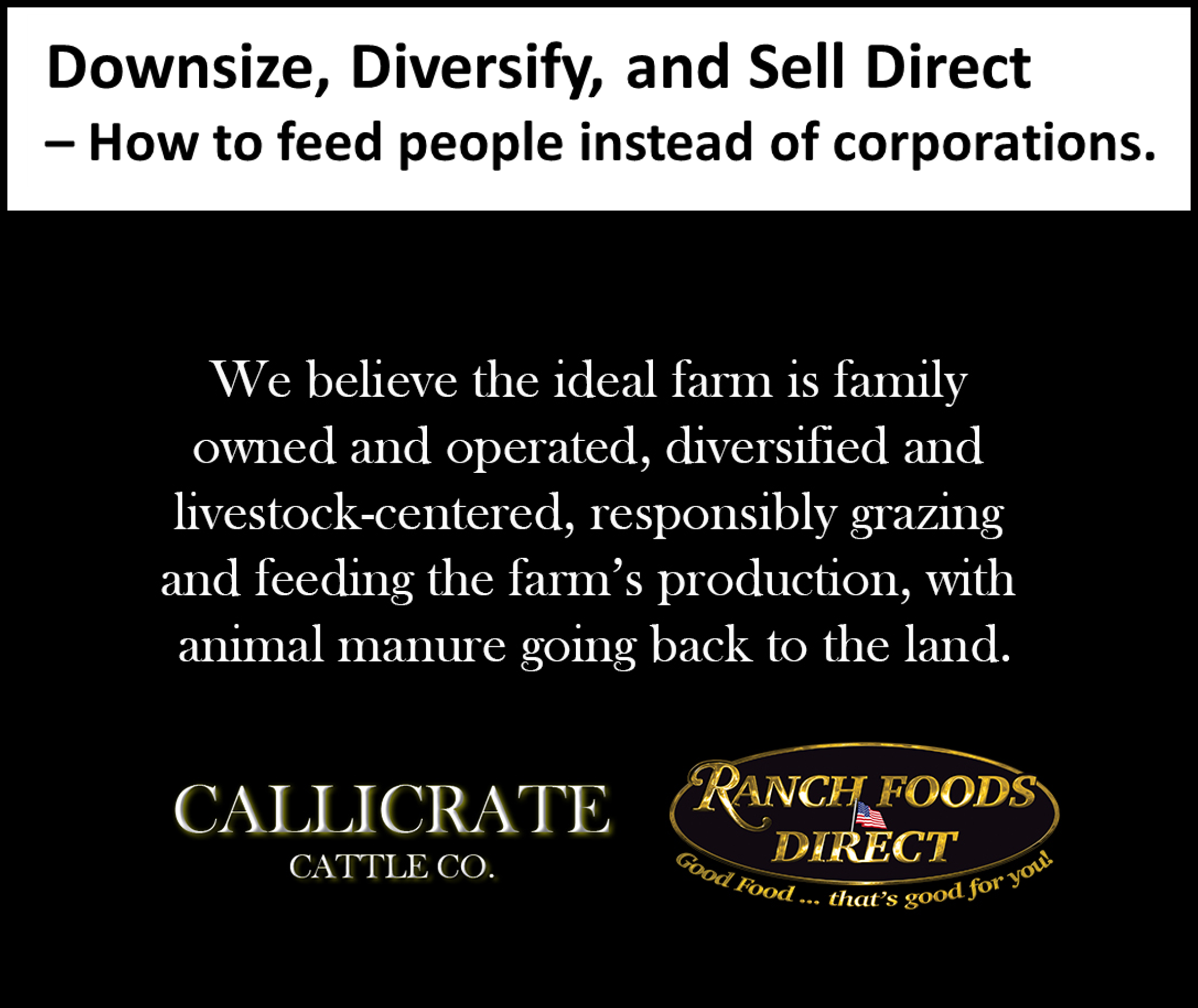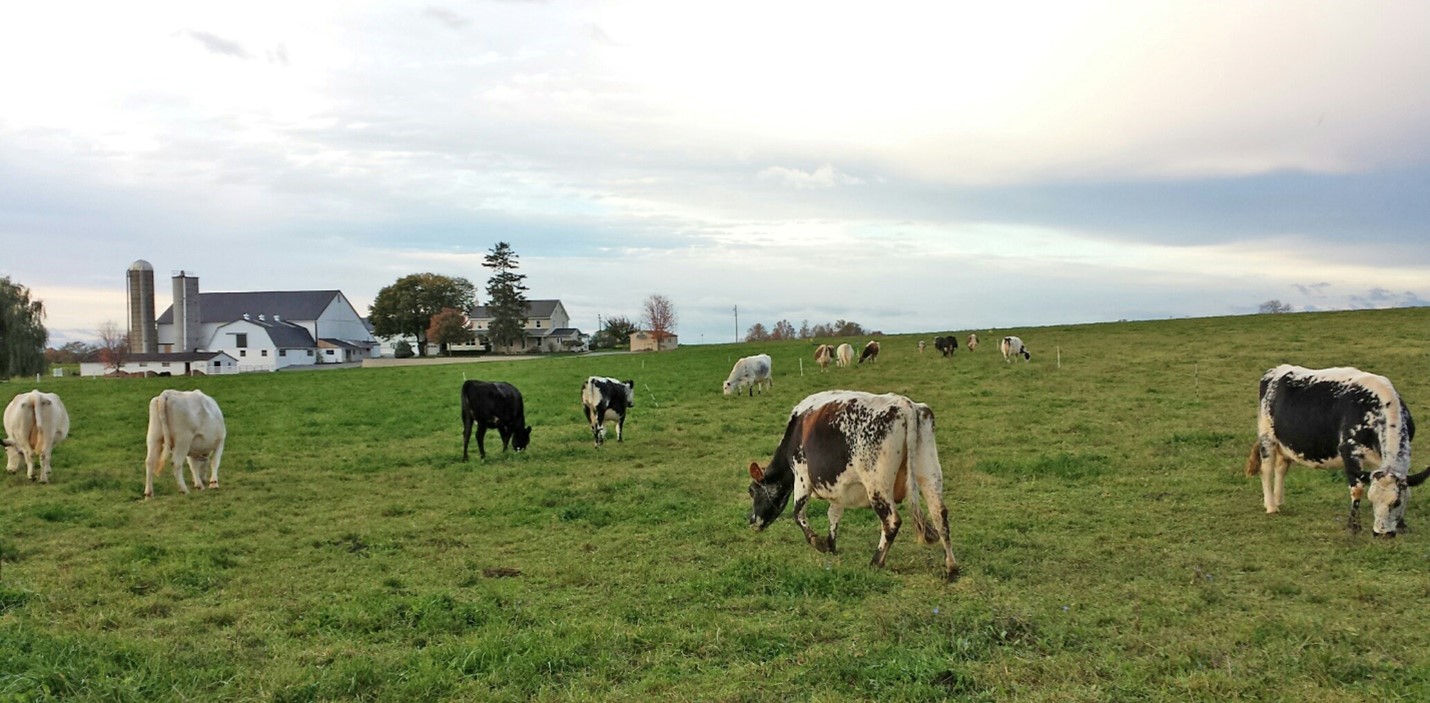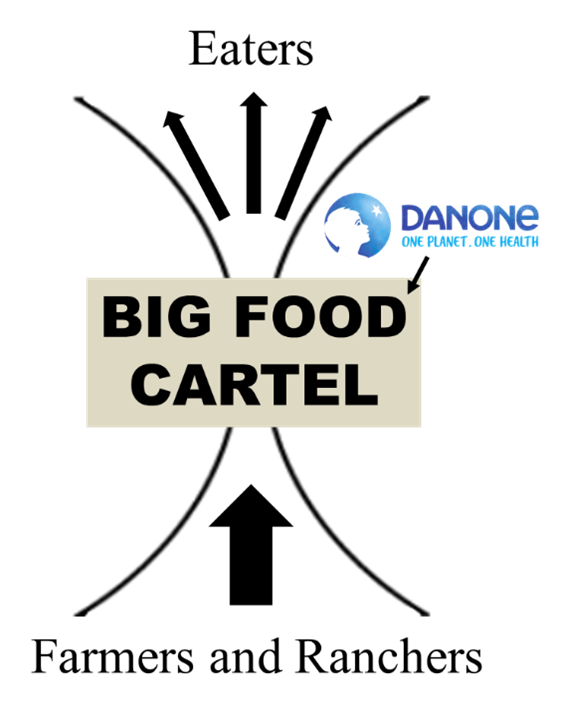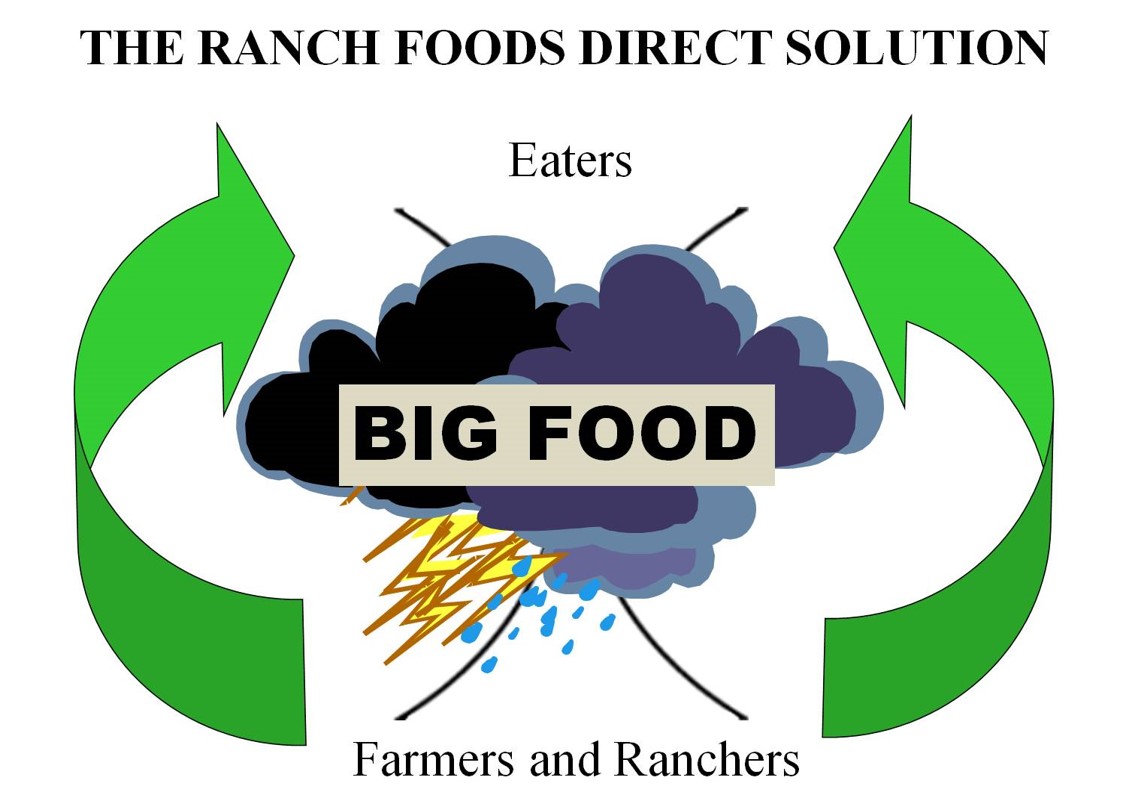America needs a new food system, free of the market predators that have forced producers and workers into lives of perpetual fear and bankruptcy.
As of September 29th, 2021, one-hundred and seventy-eight of the best organic dairy farmers in the nation have been given a notice – a death notice. French dairy giant, Danone, is cancelling their contracts. This means certain death in today’s highly concentrated, monopoly-controlled marketplace, which Danone rules over.
Why isn’t the consumer of dairy products being informed of the loss of their local/regional food supply, instead of being fed the lie of how regenerative and forward-thinking Danone is? Currently, as our nation is recognizing the importance of a more local, decentralized, and resilient economy, why aren’t we jumping at the opportunity to build a new local/regional food system in the Northeast, keeping the ideal independent dairies and farms like Danone claims to support in business, while providing consumers the ability to eat better food from their own communities?
Rather than importing from Danone’s aquifer depleting, hyper-industrial factory-farm mega-dairies in the west, consumers of the New England states should have the choice to support the multi-generational family farm dairies close to home.
It’s Danone that should receive notice
It’s well past time for the monopoly power in our critical industries to be broken up, especially foreign market predators like Danone. It’s past time to expose the massive lies of efficiencies and economies of scale that have misled lawmakers and enforcers, enabling big corporations to capture the food system, leaving Americans with bare grocery shelves. How efficient is it to transport Danone’s dairy products from arid faraway places, like Texas, Western Kansas, and New Mexico, to the fertile and forage rich climate of the Northeast – a region fully capable of sustainably feeding itself? How smart is it to destroy local wealth creating enterprises, like family dairies, in favor of below-cost-of-production imports, produced with the extraction of precious and depleting resources, the exploitation of workers, mistreatment of animals, and the disastrous and on-going environmental degradation of industrial style agriculture?
The pandemic has raised awareness among both producers and consumers of the importance of a dependable and safe food system.
The Biden administration is talking local/regional food system development with “Build Back Better,” a plan to address the national security risk of a few corporations controlling farming and food and destroying our ability to feed ourselves. What will “Build Back Better” look like? How will the money be spent? How can the investment in infrastructure be sustainable and resilient? Will Big Food capture, control, and kill the efforts to rebuild, or will new antitrust actions stop these market predators?
Any new local/regional infrastructure should guarantee a safe pathway for family farmers, ranchers, and small processors to reach consumers, feeding people and communities instead of corporations.

Question: “Is the Ranch Foods Direct model scalable?” Answer: “No, it’s replicable. It’s not meant to be scalable.”
At Ranch Foods Direct our motto is “building community around local food.” To make that happen, we left the industrial food model to sell as directly as possible to the end consumer, seeking to avoid the Big Food monopoly and their predatory practices, which have eliminated many independent food producers attempting to compete.
Northeast dairy farmers are pleading for a fair, open, and competitive market for their milk, but one doesn’t currently exist. Like our nation’s desperate independent farmers and ranchers, they had no alternative but to be part of the abusive Big Food (Danone) below cost of production supply chain – a forced transfer of their work, health, and wealth, until all is lost, including the community. Why have we continued to allow unchecked corporate greed to destroy those who feed us?
Mid-sized regional food producers like Ranch Foods Direct are a more efficient, humane, and safe alternative than the big meatpacker, retailer, and food service cartel, allowing animals to be processed where they are raised and the carcasses transported to the whole animal butcher shop like we have in Colorado Springs. Fresh milk (raw) cheese, and other dairy products direct from the farm should have a major presence in any new market development, setting a new standard and acceptable price level for both producers and consumers.
What kind of alternative market infrastructure?
Globalized corporate supply chains aren’t the solution. The local food movement, along with the local farmer and food story, has been captured and falsely promoted by large multinational food companies like Danone. Producers lack places to process, prepare, and market food, and deceived and misled consumers are struggling to find ways to support authentic local/regional food production.
The pandemic has raised awareness among both producers and consumers of the importance of a dependable and safe food system. It has also left empty spaces in and around urban centers that could be ideal locations for new local/regional food infrastructure.
Local food related businesses have long been at the mercy of rent-seeking developers and property owners. Other options should be considered for new infrastructure that provide more direct connections between the producer and consumer, with more of the food dollar remaining in the community and region, building healthier, fairer, and more resilient economies.
One alternative would be publicly owned infrastructure like the historic Queen Victoria public market in Melbourne, Australia:
 Another option is a private vendor-owned multi-establishment food hub and retail market connecting local/regional food producers to consumers using a cooperative-condo ownership model.
Another option is a private vendor-owned multi-establishment food hub and retail market connecting local/regional food producers to consumers using a cooperative-condo ownership model.
A new co-op designed ownership model could offer a better option in which a diversity of member/owners could own and control the food-hub/market real estate, earning appreciation in land and facilities, while benefiting from the synergy of co-locating. Consumers and local restaurants would have access to local food from the whole animal butcher and baker to the produce vendor, cheese maker, brewery, grain miller, coffee roaster, etc., in a lively community space within either existing or new purpose-built facilities. The food-hub/market could also offer opportunities for education and job skill development, as well as indoor and outdoor space to incubate new food related businesses. Fair market access would restore producer and worker share of the consumer food dollar and provide consumers with an affordable, healthy, safe, and dependable food supply.
Perhaps the place to begin building something better is in the Northeast where there are many appropriately sized, sustainable, but very worried dairy farmers.

















May we have permission to use this piece in our DairyBusiness Digital magazine?
Joel Hastings, Editor
jhastings@dairybusiness.com
ph 315.430.7378